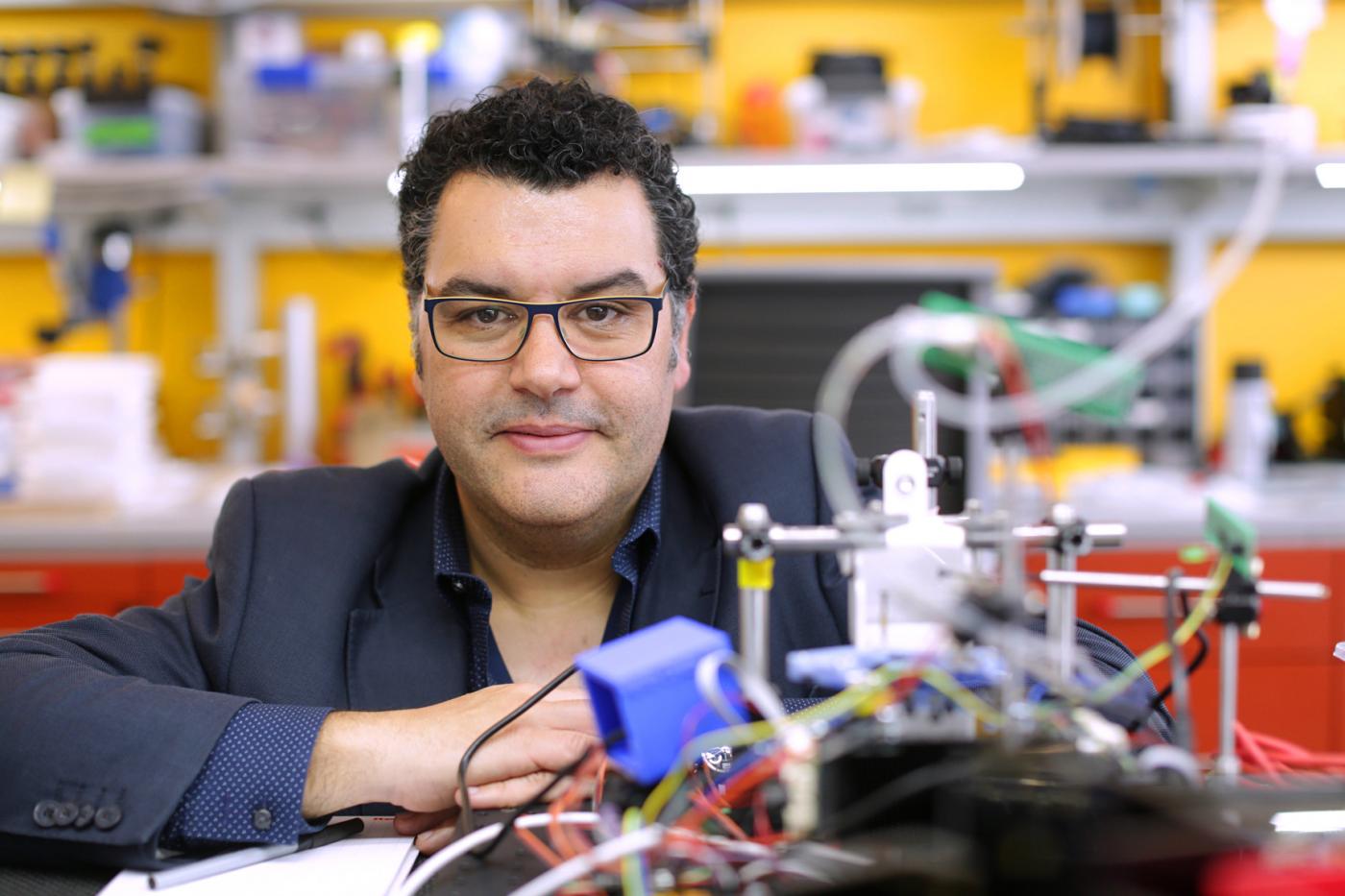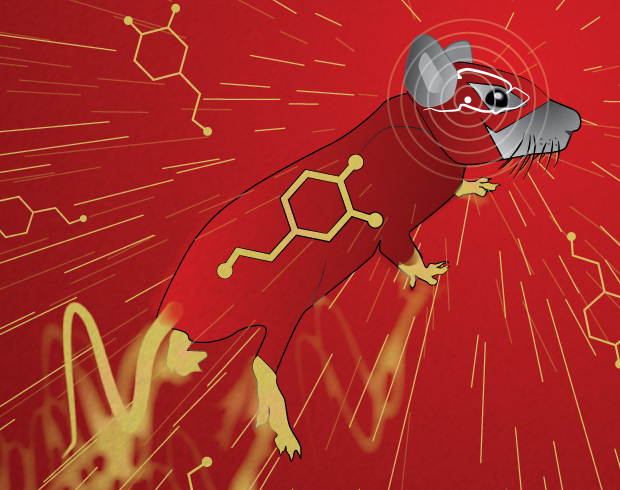Rui Costa, DVM, PhD, an expert on how the brain initiates movement and learns, has today been selected to join the National Academy of Medicine, one of the nation’s most prestigious group of scholars. Dr. Costa’s contributions extend to many key areas of neuroscience. His work has opened up new avenues of research into the brain circuitry that drives movement initiation — such as taking a first step — which has brought critical understanding to movement disorders such as Parkinson’s disease. Dr. Costa has also helped elucidate the brain mechanisms that guide learning and habit formation, which is critical to studies of obsessive-compulsive disorder (OCD) and autism.
“I am both honored and humbled with this election to the National Academy of Medicine,” said Dr. Costa, director and CEO of Columbia’s Mortimer B. Zuckerman Mind Brain Behavior Institute.
“I am most grateful to my family and my lab, who are my real-life heroes, as well as the collaborators and mentors who have each contributed significantly to our understanding of fundamental brain mechanisms,” added Dr. Costa, who is also a professor of neuroscience and neurology at Columbia’s Vagelos College of Physicians and Surgeons. “Our work shows that by understanding the mechanisms that govern things as simple as moving when we want to, we can make substantial headway in developing strategies to improve brain health.”
Our work shows that by understanding the mechanisms that govern things as simple as moving when we want to, we can make substantial headway in developing strategies to improve brain health.
In his lab, Dr. Costa studies how the brain learns new movements, such as learning to play tennis or the piano, by selecting which actions to perform at different points in time. To do so, he develops powerful new approaches that combine genetics, cutting-edge imaging technology and brain-machine interfaces. In a 2010 study published in Nature, Dr. Costa demonstrated the power of these tools to reveal that dopamine neurons — the type of brain cell that degenerates in Parkinson’s disease — are active during movement initiation. And in 2018, he confirmed in Nature that these neurons are indeed necessary for movement initiation. Because problems with movement initiation are a hallmark sign of Parkinson’s, deciphering how this process goes awry is critical for developing more effective treatments.
“People with Parkinson’s are often unable to initiate movement, or when they do initiate, the movement tends to be slower,” said Dr. Costa. “This is because the dopamine neurons involved in initiating movement are also telling other brain areas how fast that movement should be.”
Dr. Costa also investigated how the brain areas that receive the signals from dopamine neurons — like the basal ganglia, a brain region responsible for movement, learning and emotion — change during movement initiation. In a study published in 2013 in Nature he uncovered that basal ganglia circuits previously thought to determine when to move or not to move — like a ‘go’ or ‘no-go’ switch — were both active during movement initiation. He later showed in 2016 in Cell that activity in both circuits was important for proper movement. These findings changed the textbook view of how these circuits, which are affected in disorders like Parkinson’s and Huntington’s, operate.
Dr. Costa’s research has also shed light on the link between movement and learning. In a 2014 Nature Neuroscience paper, he showed how the brain combines distinct movements into a seamless sequence, called ‘action chunking.’ His lab also gained insight into the brain mechanisms that lead to the formation of habits in studies published in Science in 2009 and Neuron in 2016. In 2018, he and his team published a study in Science revealing how the brain learns to repeat neural activity patterns that elicit a feeling of pleasure. This research provides a deeper understanding of psychiatric disorders characterized by compulsive or repetitive movements and actions, such as autism and OCD.
Because disorders of the brain are inordinately complex, they require solutions that extend beyond the traditional, siloed approach that is too often the standard in academic research, argues Dr. Costa. He has long advocated for increased collaboration across the spectrum of biomedical research as critical to developing effective treatments that slow, halt or reverse debilitating and deadly brain diseases.
For example, Dr. Costa argues that experts who study different brain disorders should work together and recognize that shared mechanisms often exist among these seemingly disparate illnesses.
“Parkinson’s is considered a movement disorder, but one of the disease’s most common symptoms is depression,” said Dr. Costa. “We need to investigate the relationship between Parkinson’s and depression — as well as other syndromes — to see if we can find common underlying mechanisms that act on different brain circuits to produce different symptoms. This will prove critical to moving the needle toward more effective therapies that don’t just treat these devastating symptoms, but the underlying causes.”
Dr. Costa believes that collaborations like these, as well as an investment in diversity — of people, ideas and scientific expertise — is a key driver of scientific progress and transformative discoveries. These principles guide Dr. Costa’s research as well as the Zuckerman Institute as a whole.
Dr. Costa is one of four Columbia scientists elected to the National Academy of Medicine this year. Peter Bearman, the Jonathan R. Cole Professor of Social Sciences, Charles Branas, PhD, Chair and Anna Cheskis and Murray Gelman Professor of Epidemiology and Anil Rustgi, MD, Irving Professor of Medicine, will also be inducted into the newest class of Academy members.
“These newly elected members represent the most exceptional scholars and leaders whose remarkable work has advanced science, medicine and health in the US and around the globe,” said National Academy of Medicine President Victor J. Dzau. “Their expertise will be vital to addressing today’s most pressing health and scientific challenges and informing the future of health and medicine for the benefit of us all. I am honored to welcome these esteemed individuals to the National Academy of Medicine.”
Founded in 1970 as the Institute of Medicine (IOM), the National Academy of Medicine is one of three academies that make up the National Academies of Sciences, Engineering, and Medicine (the National Academies) in the United States. The National Academies’ mission is to improve health for all by advancing science, accelerating health equity and providing independent, authoritative and trusted advice nationally and globally.
Throughout his career, Dr. Costa has long been recognized as a leader in neuroscience. He was an International Early Career Scientist at the Howard Hughes Medical Institute from 2012-2017. In 2017, he was awarded the Ariëns Kappers Award from the Royal Netherlands Academy of Arts and Sciences. In 2014, Dr. Costa was knighted Commander of the Order of Sant'Iago da Espada by the President of Portugal. In 2014, he also received the Young Investigator Award from the Fondation Louis-Jeantet and in 2012 from the Society for Neuroscience. Prior to joining Columbia’s Zuckerman Institute in 2016, Dr. Costa served as Director of Research at the Champalimaud Centre for the Unknown in Lisbon, Portugal.



